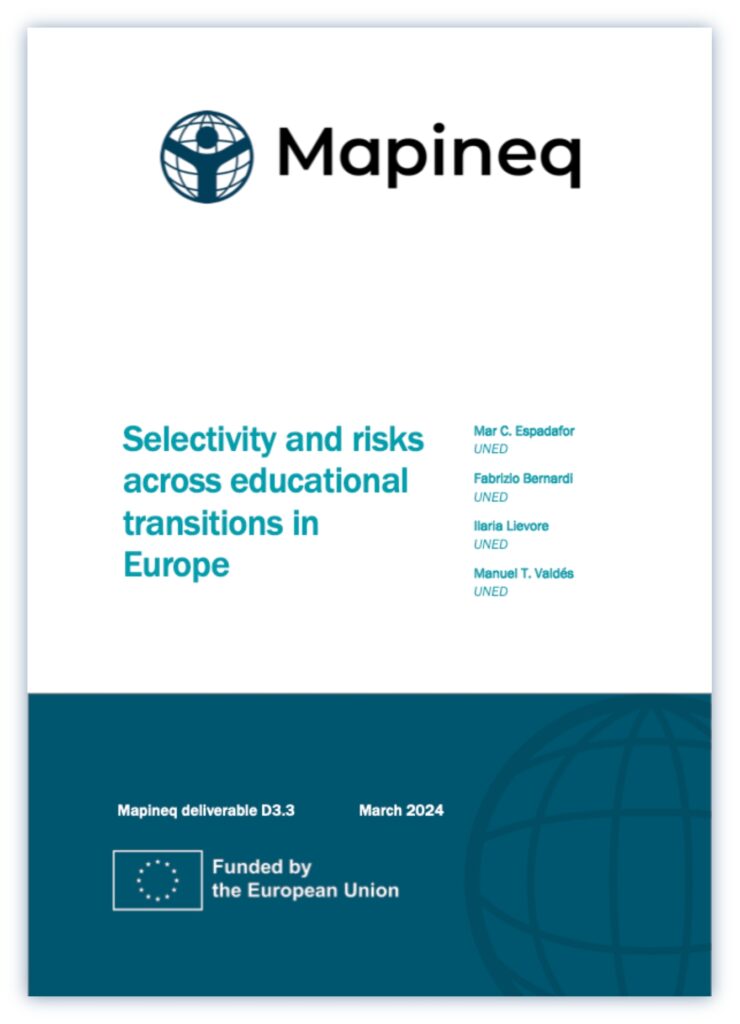Selectivity and risks across educational transitions in Europe
This study explores education selectivity and educational and labour market inequalities across European countries. Firstly, we present country-level indicators encompassing two measures of educational selectivity. We distinguish between the percentage of individuals who achieve a particular educational level (referred to as outcome selectivity) and the percentage of individuals who attain a specific educational level among those who had attained the preceding one (referred to as transition selectivity). Subsequently, we use these indicators to examine their implications for labour market risks and inequalities across European countries. We define labour market risk as the likelihood of being employed in a low socio-economic status job. Additionally, we distinguish between individuals with parents who have attained tertiary education and those without. Thus, to gauge inequalities in tertiary attainment and the labour market, we concentrate on two key factors: i) the likelihood of transitioning to a tertiary education degree, and ii) the risk of ending up in a low socio-economic status job among those who do not attain tertiary education, considering parental educational backgrounds. Moreover, we examine the moderating role of transition selectivity at the country level to elucidate education and labour market inequalities patterns. From a theoretical standpoint, these indicators afford us the opportunity to delve deeper into the consequences of experiencing educational downward mobility vis-à-vis one’s parents.
By Mar C. Espadafor, Fabrizio Bernardi, Ilaria Lievore and Manuel T. Valdés.

Outcome and transition selectivity across Europe
Selectivity in tertiary education varies widely across European countries. Nordic nations, the UK, Belgium, the Netherlands, and Ireland, display low selectivity, while Italy, Hungary, Slovakia, Austria, and the Czech Republic exhibit high selectivity

The protective role of tertiary education
Our analysis suggests a common pattern by which across all European countries studied, individuals with a tertiary education degree, regardless of their parental education, have a lower chance of being employed in an unskilled job when compared to individuals who only attained upper-secondary education

Protective role of parental education and transition selectivity
Parental education is a safety net against the risk of being employed in an unskilled job for individuals not transitioning to tertiary education. In more selective countries, the protective function is more pronounced, emphasising the importance of transition selectivity in influencing labour market outcomes

